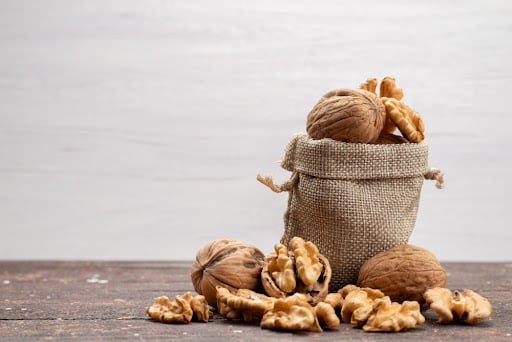How to cure Insomnia?
October 10, 2022

Maintaining your general health requires getting a good night’s sleep. Insomnia may occur if you have trouble falling asleep or staying asleep through the night. A sleep issue called insomnia makes it difficult for you to get to sleep or stay asleep.
You can have trouble falling asleep or staying asleep all night for various reasons, such as stressful life events and health problems. Additionally, short-term insomnia that lasts only a few days or a week (acute insomnia) can develop into chronic insomnia, which is longer-term insomnia that persists after the initial stressor.
Contents
Every night, adults need seven to nine hours of sleep. This number differs from person to person and depends on a number of factors. Sleep duration is less important than sleep quality. You develop different sleeping patterns as you age.
Insomnia can make you feel tired all the time, which can affect your mental and emotional health. For instance, if your body doesn’t receive enough sleep, it may affect your mood and your capacity for concentration. You can also be at a higher risk of contracting illnesses like diabetes, heart disease, obesity, and depression. There are numerous environmental, physiological, and psychological factors that might contribute to the onset of insomnia, including:
Insomnia: What is it?
A frequent sleep problem called insomnia is characterized by difficulty:
- Falling asleep at first
- Having a nighttime awakening.
- Waking up earlier than anticipated.
What signs of insomnia are there?
Chronic insomnia could lead to:
- The inability to fall asleep or the need to get up in the middle of the night.
- Difficulty falling asleep again.
- Being worn out or fatigued during the day.
- Irritability or a downbeat attitude.
- Memory or attention issues.
What causes insomnia?
There are numerous environmental, physiological, and psychological factors that might contribute to the onset of insomnia, including:
- Life’s stresses might come from your job, relationships, finances, and more.
- Unhealthy sleep and lifestyle choices.
- Depression, anxiety disorders, and/or other mental health issues.
- Chronic illnesses, such as cancer.
- Chronic pain brought on by fibromyalgia, arthritis, or other diseases.
- Digestive illnesses, such as heartburn.
- Fluctuating hormone levels are brought on by menstruation, menopause, thyroid disease, or other conditions.
- Prescription drugs and other drugs.
- Other sleep disorders include restless legs syndrome and sleep apnea.
Home remedies for Insomnia
Exercise
One of the best treatments for insomnia is regular exercise. Studies have shown that exercise not only improves your overall health but also the quality of your sleep.
Try to work out earlier in the day because exercise releases endorphins that awaken and energise you. Exercise should be avoided two hours before night.
Sleep hygiene
You can beat insomnia by practicing proper sleep hygiene and practises. Thus, you ought to make an effort to maintain a consistent sleep routine each day. Establish a consistent bedtime and wake-up schedule so that your body develops the habit of sleeping during certain times.
Additionally, you should refrain from taking naps all day. You’ll feel more worn out when it’s time for bed each night if you do this.
Nutrition
Your eating and drinking habits may also impact how well you sleep. A good diet offers many benefits, but avoid consuming large meals two hours before bed.
This also applies to caffeine and alcohol. Caffeine and alcohol both have the potential to reduce the quantity or difficulty of your sleep. Avoid drinking alcohol after dinner and stop using caffeine by mid-afternoon.
Also Read: Importance Of A Balanced Diet
One of the most well-liked sleep aids for insomnia is warm milk or chamomile tea.. Both are thought to have an impact on the brain and facilitate sleep.
This also applies to artificial lighting. Before going to bed, avoid using your phone or tablet or watching TV. Electronic device full-spectrum light has a stimulating effect that makes it difficult to fall asleep. Instead, consider relaxing before bedtime activities like reading, listening to music, or having a bath.
Don’t switch on the light if you get up in the middle of the night to use the restroom. Instead, navigate yourself to the restroom with the aid of a flashlight. It may take you longer to fall asleep again due to the bathroom’s overhead light.
Relaxation
Try to complete your most difficult or challenging chores earlier in the day rather than just before night. Dim the lights, if possible, turn the heat down, and turn down the noise to make your bedroom relaxing and comfortable. A white noise machine and earplugs may be useful.
To avoid being tempted to check the clocks in your room at night and becoming concerned about the time, hide them. The more sleep-related anxiety you experience, the harder it may be to fall asleep and get rid of insomnia.
Foods that help you sleep better
1. Chamomile Tea
Many people think that drinking a steaming hot cup of tea will give them owl-like alertness. However, there are numerous advantages to switching to chamomile tea instead of your usual cup of tea. Additionally, studies show that regularly consuming chamomile tea strengthens the immune system and lowers anxiety and despair, two of the main causes of sleep disturbances. The antioxidant Apigenin can also be found in chamomile tea. This antioxidant attaches to the brain receptors that increase drowsiness and stop insomnia. Additionally, drinking this herbal tea before bedtime aids in relaxing the nerves.

2. Pistachios
Pistachios, which are abundant in important minerals like protein, magnesium, and vitamin B6, can promote sleep. But once more, eat them in moderation since anything high in calories can prevent you from falling asleep.

3. Walnut
The advantages of this walnut are known to most of us. But did you also know that walnuts help regulate the melatonin sleep hormone, improving the overall quality of your sleep? Additionally, walnuts contribute to the availability of ALA, an omega-3 fatty acid that the body converts to DHA. Because of this DHA, serotonin, a brain chemical that encourages sleep, is generated more frequently.The majority of us are familiar with this brain nut and its advantages. But did you know that walnuts also aid in the regulation of the melatonin sleep hormone, enhancing the quality of your sleep in general? Walnuts also help to supply ALA, an omega-3 fatty acid that the body transforms into DHA. Serotonin, a brain chemical that promotes sleep, is produced more often because to this DHA.

4. Kiwis
According to science, one of the healthiest meals to eat before bed is the extremely nutrient-dense Kiwi! The fruit not only facilitates rapid sleep onset but also ensures uninterrupted sleep all night long.

5. Almonds
Everyone is aware of almonds’ health benefits! Almonds are abundant in very healthy minerals like magnesium. Magnesium is well known for helping patients with insomnia. It also aids in controlling the stress hormone Cortisol, which is known to interfere with sleep. Consequently, a handful of almonds would be a good choice to make the next time you experience a midnight slump.

When to see a doctor?
Insomnia can be identified and treated by your doctor. They might suggest you see a neurologist, psychologist, psychiatrist, or someone who practices alternative medicine, for instance.
People also ask
1. Can insomnia be cured naturally?
You might be able to enhance the quality of your sleep by modifying a few of your routines and habits. One of the finest ways to treat insomnia is to engage in some regular exercise. Exercise benefits your general health, but studies also show that it enhances the quality of your sleep.
2. Is insomnia a mental illness?
The majority of the time, insomnia is a symptom of another ailment that should be looked into by the patient and their medical professionals. Other people may get insomnia as a result of their lifestyle or work schedule.
3. What are the 3 types of insomnia?
- Less than one month: transient sleeplessness.
- Short term insomnia Insomnia that lasts for fewer than six months.
- More than six months: chronic insomnia.
4. When is insomnia an emergency?
When insomnia symptoms persist for more than four weeks or when they affect your daytime activities and daily functioning. You are worried about potential sleep apnea or other medical issues that can interfere with sleep since you frequently wake up during the night gasping for air.








